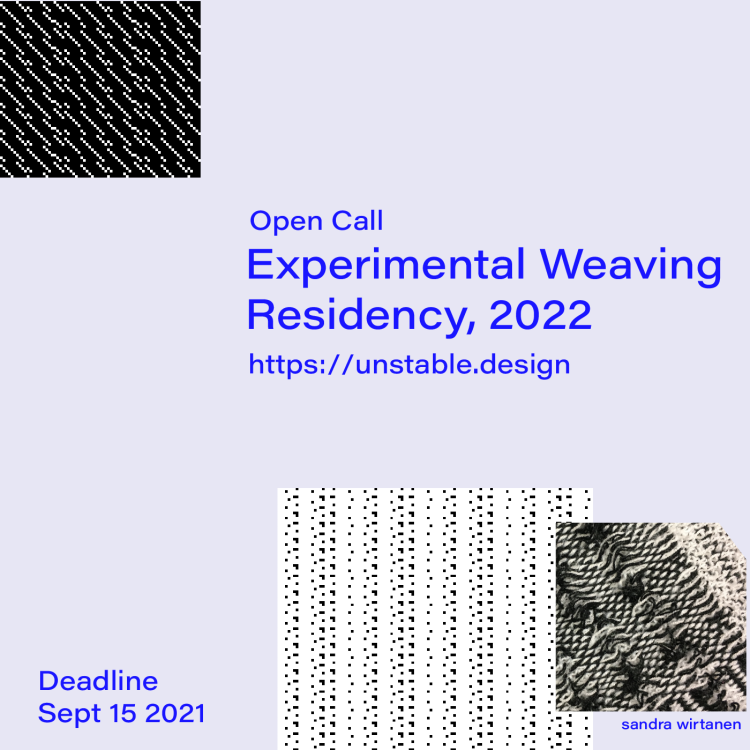Unstable Design Lab announces open call for second experimental weaving residency

Beginning in the spring of 2022, the resident will work with the Unstable Design Lab and other CU Boulder researchers to create a series of samples inspired by challenges currently faced by engineering researchers. The resident will be encouraged to work across a wide spectrum of disciplines, bringing their specialized knowledge to bear on such fields as spacesuit design, integration of power harvesting diodes, reusable textile structures for zero-waste manufacturing, structures that dynamically fold and unfold to support mechanical structures or soft robotics.
With dedicated space in the Unstable Design Lab, the resident will have access to a TC2 digital jacquard loom; other weaving, spinning and knitting equipment; traditional and novel weaving materials; programming support for some custom software needs; the fabrication facilities available at the ATLAS Institute; motion-capture and high-end audio equipment in the B2 Center for the Media Art and Performance; and exhibition space to showcase work at the end of the residency.
First residency
The Unstable Design lab received more than 200 applications in 2019 for the first Experimental Weaving Residency to Bridge Art and Engineering, ultimately selecting Sandra Wirtanen. Because of the pandemic, the residency did not occur in 2020 or 2021.
The large number of applicants for the residency reflects a growing interest in the relationship between textiles and emerging technologies, says Devendorf, who co-founded the initiative with Steven Frost, faculty director of the B2 Center for Media, Arts & Performance.
During the six-week residency, Wirtanen collaborated with university researchers and local partners to conceptualize and develop textiles that engaged technology in their design, production or concept, including data-driven or generative design of textiles, textiles with embedded functionality, and/or textiles that embody critical perspectives of technology and society.
The residency is supported by a grant from the Center for Craft, Creativity, and Design, a non-profit organization based in Asheville, NC, dedicated to advancing the understanding of craft by encouraging and supporting research, critical dialogue and professional development.
Applicants should be open-minded, curious and above all deeply knowledgeable about woven structures and their behaviors. No knowledge of computer science, electronics or engineering is required for participation. The application deadline is Sept. 15.
Publications
Laura Devendorf, Katya Arquilla, Sandra Wirtanen, Allison Anderson, and Steven Frost. 2020. Craftspeople as Technical Collaborators: Lessons Learned through an Experimental Weaving Residency. In Proceedings of the 2020 CHI Conference on Human Factors in Computing Systems (CHI ’20). Association for Computing Machinery, New York, NY, USA, 1–13. DOI:https://doi.org/10.1145/3313831.3376820 (Honolulu, Hawaii (virtual)–April 25-30, 2020) [Honorable Mention Award].


